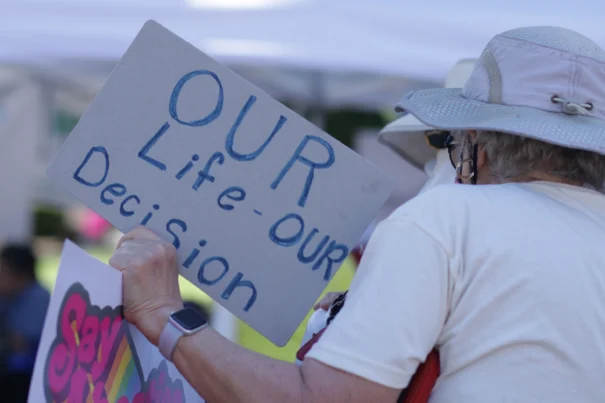
Photo by Aiden Frazier
Louisiana Gov. Jeff Landry signed a bill on May 24 to criminalize the possession of abortion-inducing drugs misoprostol and mifepristone without a prescription, with penalties including up to 10 years in prison and fines of up to $15,000. Louisiana will be the first state to classify these drugs as Schedule IV “controlled dangerous substances,” grouping them with narcotics and depressants. This comes as abortion, both medical and surgical, is already banned in the state with very limited exceptions.
The extreme bill was introduced by Republican state Sen. Thomas Pressly after he said his sister was given misoprostol without her consent. Pressly and his fellow conservative lawmakers added a new amendment to a related Senate bill to include criminal penalties for possessing these drugs without a valid prescription or outside professional medical practice. The amendment places these drugs under Louisiana’s Uniform Controlled Dangerous Substances Law, which covers illegal drugs such as cocaine, heroin, and methamphetamine.
Despite strong opposition from nearly 270 Louisiana physicians, healthcare providers, and medical students, who argue that the drugs are safe and do not require additional regulation, Pressly claims the bill will not harm women’s healthcare. The legislation exempts pregnant women possessing the drugs for personal use.
Louisiana activist Kaitlyn Joshua released a statement on behalf of the Biden campaign: “This is Donald Trump’s Project 2025 agenda in action: criminalizing women’s reproductive health care. This should ring alarm bells for every woman across the country — MAGA Republicans want to ban and criminalize abortion medication everywhere.” While experiencing a miscarriage, Joshua was turned away from two emergency rooms in Louisiana and denied health care.
This gubernatorial move precedes an upcoming Supreme Court ruling on access to medication abortion for the case FDA v. Alliance for Hippocratic Medicine, which is the most significant abortion-related case since the overturning of Roe v. Wade. The decision is expected in June.
Medication abortion, typically involving both mifepristone and misoprostol, accounted for about two-thirds of U.S. abortions last year, per the Guttmacher Institute. Mifepristone is effectively used in combination with misoprostol in almost 100 countries around the world to safely end a pregnancy and has been approved by the FDA since 2000.
The bill will go into effect on October 1.